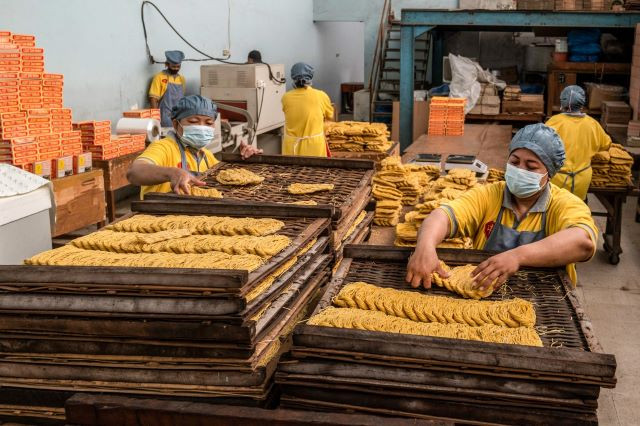Popular Reads
Top Results
Can't find what you're looking for?
View all search resultsPopular Reads
Top Results
Can't find what you're looking for?
View all search resultsRI says Australia needs to prove its 'sincerity' in rebuilding trust, confidence
The Indonesian government has reiterated that Australia needs to show its sincerity in rebuilding trust and confidence with Indonesia amid the latest controversy sparked by Australian Prime Minister Tony Abbottâs statement that Canberra would not stop spying on Jakarta
Change text size
Gift Premium Articles
to Anyone

T
he Indonesian government has reiterated that Australia needs to show its sincerity in rebuilding trust and confidence with Indonesia amid the latest controversy sparked by Australian Prime Minister Tony Abbott's statement that Canberra would not stop spying on Jakarta.
Presidential foreign affairs spokesman Teuku Faizasyah said on Sunday that sincere and genuine intentions were key to restoring the Jakarta-Canberra relationship, which has been badly damaged since allegations surfaced that Australian spies had wiretapped phones belonging to President Susilo Bambang Yudhoyono and his wife in 2009.
In response, Yudhoyono suspended cooperation with Australia on military and defense, joint patrols against people smuggling and intelligence and information sharing.
'Indonesia needs to be assured of Australia's willingness to repair the damage,' Faizasyah told The Jakarta Post. 'We are not rushing to normalize the bilateral relationship with Australia. We need to be convinced of Canberra's sincerity toward rebuilding trust and confidence for a stable future relationship.'
Faizasyah was commenting in the wake of Abbott's statement to an Australian radio station on Friday, in which he denied that Canberra had agreed to stop collecting intelligence on Indonesia.
'Indonesia certainly hasn't agreed to stop collecting intelligence on Australia, either. But we are close friends. We are strategic partners. I certainly want Australia to be a trusted partner of Indonesia and I hope Indonesia can be a trusted partner of Australia,' he said.
The statement came just one day after Australian Foreign Minister Julie Bishop pledged in Jakarta on Thursday that her government would never use its intelligence assets 'in any way that could harm Indonesia'.
Abbott's comment was quickly criticized, being perceived as contradicting Bishop's statement, which she made following a meeting with Foreign Minister Marty Natalegawa.
Many said that Abbott had undermined the outcome of the much-anticipated meeting, which both Marty and Bishop claimed had been 'positive, productive and constructive'.
But Marty himself has played down the controversy. 'I don't see anything inherently inconsistent in that kind of statement. Intelligence gathering and the collection of information is something that countries do, but it must be done within a cooperative framework,' he told ABC.
One significant outcome from the foreign ministers' Jakarta meeting was an agreement to set up a 'special communication channel' to help ease problems if the temporary cooperation suspensions had too-negative an impact.
Previously, Yudhoyono said that he welcomed the agreement made by Marty and Bishop. 'For now, let the process takes its course, until Indonesia and I are convinced that there will be no further [tapping] incidents,' he said during a visit to Madura, East Java, on Friday.
International law expert at the University of Indonesia (UI), Hikmahanto Juwana, who called Abbott's statement 'provocative', suggested that the prime minister was perhaps dissatisfied with the result of the Marty-Bishop meeting.
'Abbott may have disagreed with Indonesia's approach toward restoring relations, as Yudhoyono imposed several conditions. He may also have been uncomfortable because Australia now appears weak,' he said.









